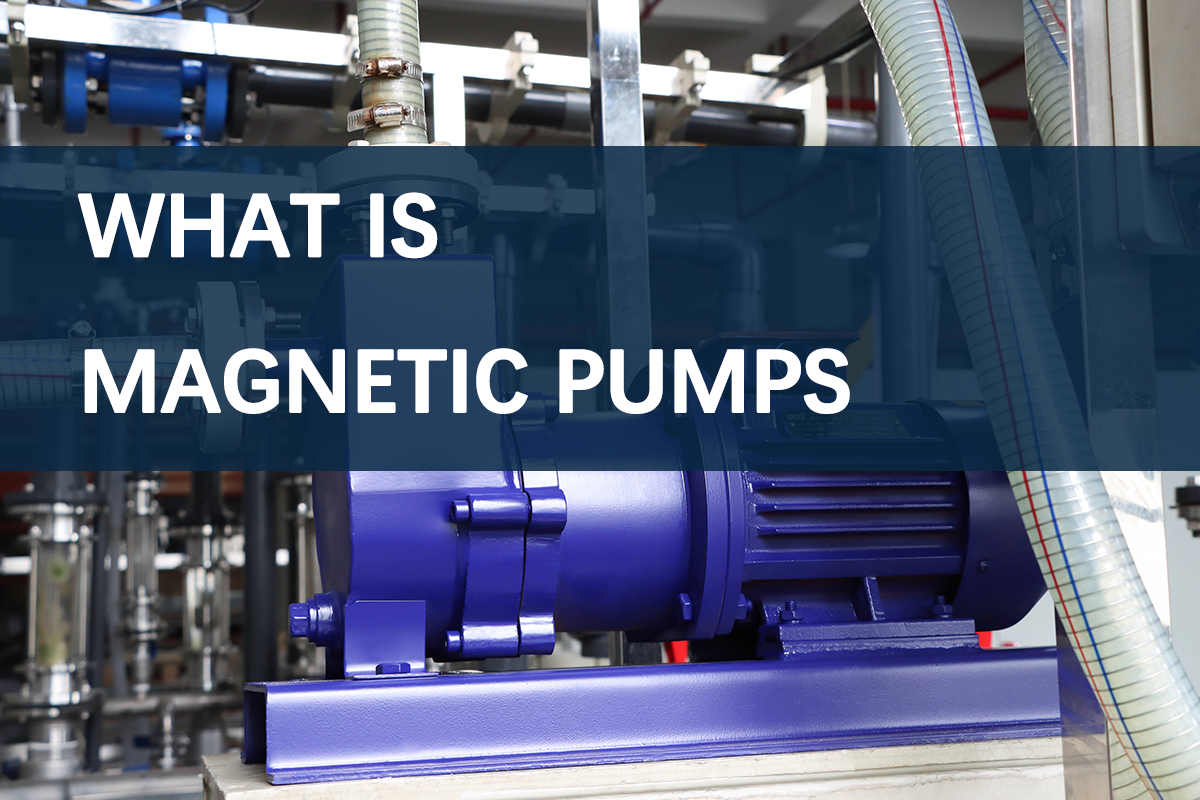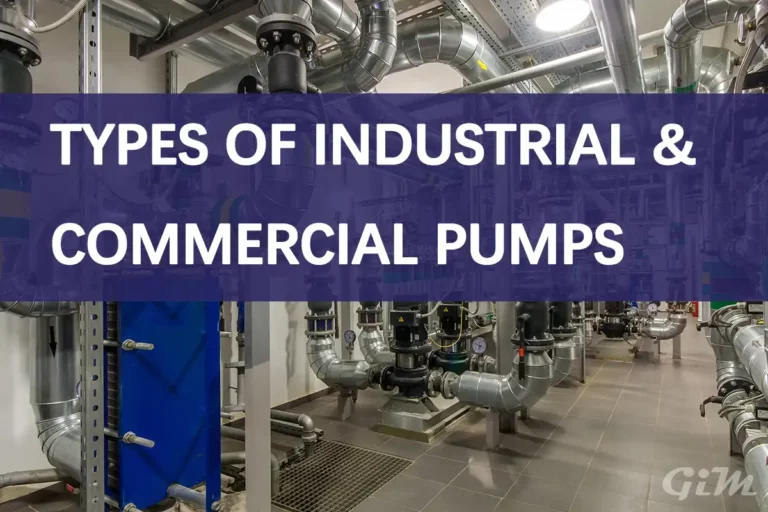Magnetic pumps are specialized pumps that offer a unique solution for moving liquids without the common issues associated with traditional mechanical pumps. By utilizing magnetic coupling, these pumps eliminate the need for mechanical seals, resulting in a design that is both efficient and reliable. This innovation has made magnetic pumps a popular choice across various industries, particularly where safety, cleanliness, and efficiency are critical.
How Do Magnetic Pumps Work?
The operation of magnetic pumps hinges on a simple yet effective principle: magnetic coupling. In this setup, there are two sets of magnets: one attached to the motor and the other to the impeller.
- Magnetic Coupling: When the motor is powered on, it creates a rotating magnetic field that engages the impeller’s magnets. This interaction causes the impeller to spin, which moves the fluid through the pump. Since there is no direct mechanical connection, there is no risk of leakage at the seal, making these pumps particularly advantageous for handling hazardous or corrosive liquids.
- Impeller Design: The impeller is typically designed to maximize fluid flow while minimizing turbulence, which can lead to wear and inefficiency. The specific design of the impeller can vary depending on the application, with options for different shapes and materials to suit the fluid being pumped.
- Pump Housing: The housing of a magnetic pump is usually made from materials that resist corrosion and wear, such as stainless steel or various plastics. This is particularly important in environments where the pump may be exposed to harsh chemicals.
Advantages of Magnetic Pumps
Magnetic pumps offer several advantages over traditional pumping systems:
- Leak-Free Operation: The most significant benefit of magnetic pumps is their leak-free operation. Without mechanical seals that can wear out and fail, these pumps provide a safe solution for transporting hazardous or corrosive liquids. This characteristic is especially crucial in industries like pharmaceuticals and chemicals, where contamination can have severe consequences.
- Reduced Maintenance: Fewer moving parts mean that magnetic pumps require less maintenance compared to traditional pumps. The absence of seals reduces the chances of failure, leading to lower repair and replacement costs over time. This reliability can lead to significant cost savings for businesses.
- Energy Efficiency: The design of magnetic pumps allows them to operate at higher efficiencies. They can maintain consistent flow rates while consuming less energy, making them an environmentally friendly choice for fluid transfer.
- Versatility: These pumps can handle a wide range of fluids, including aggressive chemicals, oils, and even food-grade liquids. Their versatility makes them suitable for many applications, from industrial processes to residential systems.
- Quiet Operation: Many users appreciate the quieter operation of magnetic pumps compared to conventional pumps. The absence of mechanical contact reduces noise levels, creating a more pleasant working environment.
Applications of Magnetic Pumps
The versatility of magnetic pumps allows them to be used in various industries and applications, including:
- Chemical Processing: In the chemical industry, magnetic pumps are ideal for transporting aggressive and corrosive chemicals. Their leak-free design helps ensure safety and compliance with environmental regulations.
- Pharmaceuticals: The pharmaceutical industry requires high levels of hygiene and safety in fluid transfer. Magnetic pumps meet these demands by preventing contamination and ensuring precise flow rates.
- Food and Beverage: Magnetic pumps are used in food processing to handle various liquids, including syrups, juices, and sauces. Their design minimizes the risk of contamination, making them suitable for food-grade applications.
- Water Treatment: In water treatment facilities, magnetic pumps can be employed to transport chemicals used in purification processes. Their efficiency and reliability contribute to effective water management.
- Aquarium and Hydroponics: Hobbyists and commercial growers use magnetic pumps in aquariums and hydroponic systems to circulate water and nutrients efficiently.
Choosing the Right Magnetic Pump
When selecting a magnetic pump, several factors should be considered:
- Fluid Characteristics: Understanding the properties of the fluid being pumped is crucial. Consider the fluid’s viscosity, temperature, and corrosiveness to choose a pump that can handle these factors effectively.
- Flow Rate: Determine the required flow rate for your application. Magnetic pumps come in various sizes and capacities, so selecting one that meets your needs is essential.
- Material Compatibility: Ensure that the pump materials are compatible with the fluids being pumped. This compatibility will help prevent degradation and extend the pump’s lifespan.
- Operating Environment: Consider where the pump will be installed. Factors like temperature, humidity, and potential exposure to chemicals can influence the pump’s performance and durability.
- Cost and Budget: While magnetic pumps can be more expensive upfront compared to traditional pumps, their long-term savings on maintenance and repairs should be factored into the budget.
Maintenance Tips for Magnetic Pumps
To maximize the lifespan and efficiency of magnetic pumps, consider the following maintenance tips:
- Regular Inspections: Periodically inspect the pump for any signs of wear or damage. Check the housing and impeller for cracks or corrosion.
- Clean the System: Ensure that the pumping system is clean and free of debris. Contaminants can impact performance and lead to premature wear.
- Monitor Performance: Keep track of the pump’s performance metrics, such as flow rate and pressure. Any significant changes may indicate a need for maintenance or adjustment.
- Follow Manufacturer Guidelines: Always adhere to the manufacturer’s guidelines for operation and maintenance. These recommendations are tailored to the specific pump model and can help ensure optimal performance.
- Store Properly: If the pump is not in use for an extended period, store it in a dry, clean environment to prevent damage.
Conclusion
In summary, magnetic pumps are a reliable and efficient solution for various fluid transfer needs. Their innovative design eliminates the risks associated with mechanical seals, making them ideal for handling hazardous and corrosive liquids. With benefits such as leak-free operation, reduced maintenance, and energy efficiency, these pumps are increasingly becoming the go-to choice across multiple industries. Whether you’re in chemical processing, pharmaceuticals, or food production, investing in a magnetic pump can enhance your operational safety and efficiency.







